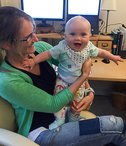 Back when I was the size of a small hippopotamus, one of my research-funders suggested I write a blog about the challenges of being a scientist and a mother. Good idea I thought. Since then, there have been approximately 4 minutes to think about this ever again. The rest of the time I’m so busy trying to be a mother and a scientist there is barely time to wash or eat. Written in the small solitary hours between short sleeps, this is my two-pence worth on the subject for now. 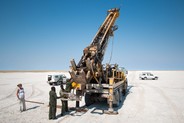 Fieldwork in Botswana, 8 months pregnant. Fieldwork in Botswana, 8 months pregnant. I spent my last hours before going into labour in a sediment lab with a lake core. I hadn’t really prepared well for becoming a mother and it was a bit like finding myself as an unwitting participant in an Ironman competition with only the NCT pamphlet and handbag full of water-wipes to get to the finish line. Without my friend Susie, who emptied the contents of her loft (Moses basket and all) on to our hallway a few weeks before my daughter arrived, the baby may well have been wearing an old cardigan and sleeping in a cardboard box. Thanks Sooz! At the time of writing I’m 6 months in to motherhood, I have a wardrobe defined by decorative drool, enough plastic crap to keep open a petrochemical plant and this evening, there was a poo on my bathroom floor. My particular 6-month-old gremlin also likes to wake up every night…...every…..single…..hour. She is, it seems, inured to exhaustion and goes about her day with great enthusiasm, smiling at me, the dog, random strangers in the street and inanimate objects around the house. Her zest for life is infectious and adorable and, as another science mum pointed out, an impressively effective evolutionary survival tactic. I’m late to the parental party. Whilst I was swanning around Africa doing science stuff I watched from the side-lines as my friends crossed over to the dark side and then emerged from maternal Mordor, battle-hardened, grey-haired and smug with survival as they edged towards the school gates. I was prepared for the sleeplessness, for the hours spent cleaning up poop and vomit, I was prepared for the isolation, for the loneliness at the 3am wake up when the gremlin demanded I get up for the 5th time that night. What I wasn’t prepared for was the boredom, or the loss of identity, or the deep sense of injustice as I watched the career I loved dribble away and the gulf between what was expected of me and what was expected of my partner widen to an un-crossable breadth. (Beware the bitter rage of a woman who hasn’t slept for longer than 2 hours in a row for 6 months - never complain to this particular type of human that you are ‘tired’). Most of all, I wasn’t prepared for the enormous acreage of love I would have for the pooping, drooling, sleep-terrorist. I had little idea about the gut-wrenching guilt that derives from being at my desk with data for even 1 day a week while she hangs out with (read - screams at and tries to scratch the eyes out of) well-meaning strangers at nursery. It doesn’t help that I appear to have produced the world’s most stubborn small human who refuses to eat, sleep or poop unless her mother, very specifically, is within boobs-reach. In the harsh reality of even the best-intentioned academic institution, you can paint yourself platinum and gold with Athena swan awards for all Biology cares, it gives not one shit about gender equality. I would love my daughter to grow up believing that she could be anyone and do anything she liked – pilot, fireman, farmer, accountant, explorer. After all, I’d always believed it for myself. I chose Quaternary Scientist*. I clearly hadn’t thought this through. What exactly, when I bumble off into the Kalahari with a pick-axe and spade, will I do with my daughter? Is it unfair to take her unnecessarily into the wilderness? Who will look after her when I’m trying to get a 41 ton drill-rig out of the mud? Relatives frown at me, work points out that there is no university insurance company in their right mind that will insure a fieldwork baby, suddenly I see risk everywhere, guilt tugs at my shirt sleeves. This is my dream, not hers. But I am hesitant, I also don’t want her to grow up and see a mum who gave up on the things she loved at the first sign of trouble. More than that, I want to share those extraordinary experiences with her, to provide her with the opportunity to feel what wilderness is, to wonder at wide open endless desert, to know the company of 3 thousand year old trees and stare into a sky with 6 billion stars. Perhaps one of the most precious gifts I could give her would be to have a tiny glimmer of what it feels like to connect the dots in the landscape and feel utterly humbled by the history of the Earth. In the rare moments when she sleeps I stare at the hundreds of unanswered emails that have accumulated whilst I’ve been busy mushing up carrots and cleaning vomit from the carpet. I’m not quite sure where to begin. I delete the emails from Microsoft that tell me ‘Your mailbox is almost full’ and lean ever more heavily on my long-suffering colleagues. I find a ‘return to work’ fund on the University website and get excited about covering my childcare costs in the field but the criteria require me to demonstrate that my proposed funded activities are specifically for growing my career not just for maintaining it. I wonder about this. Who are these super-humans whose maternity leave ends with a push at career development? Where is the ‘clinging on by your fingernails fund’ for the sleep-deprived scientist fire-fighting their way through the 16,000 strong ‘to do’ list that has accumulated in their absence? The fundamental challenge of parental-leave from a career in science is that the march of academia doesn’t stop when you do. It bumbles on. Deadlines fly by, project goals must still be met on time, data must still be produced so that other scientists, whose careers partly depend on your efficiency, can continue. There is no maternity cover for the narrow niche in which I have carved my expertise. And so, rather than a cup of tea, daytime television and an occasional nap, I spend those precious ‘free’ maternity-leave minutes analysing text files of data. I try to write emails to the lab-tech to explain the next experiment as the cheerful gremlin unhelpfully but enthusiastically bashes the keyboard and dribbles on my lab notes. The two screens that were once so useful for passing data between software now permanently host a range of YouTube videos featuring psychedelically-animated nursery rhymes and bouncing baby animals. There are project progress meetings, unfinished papers, long-promised peer reviews. I’m officially due back at work in a month and quite frankly I’m beyond exhausted before I’ve even begun. The Gremlin looks at me expectantly, adoringly. I have never loved another human being with such ferocious protectiveness. I wonder if I will let her down. I wonder with titanic admiration about the science-mothers who made it through this bit and thrived, or at least survived parental-Mordor with all their senses intact? If this late-night ramble is anything, it is an ode to these people, a promise never to take these super-humans for granted again. It might also be a poorly justified, guilt-ridden explanation (an apology?) to my daughter for not always being able to play peeka-boo all day every day, at least not on Mondays. And maybe it’s a plea for patience, I am learning fast the art of spinning plates but bear with me, there may be a little broken crockery ahead. *I study the 2 and half million years of Earth's history.
2 Comments
Cat Hopkins
6/2/2017 18:20:54
This was a very interesting and honest read. I know it's not helpful, but I am truly in awe of how you juggle everything.
Reply
Sallie Burrough
6/6/2017 13:54:33
Thanks Cat!!
Reply
Your comment will be posted after it is approved.
Leave a Reply. |
AuthorSallie is a Quaternary Scientist, National Geographic Explorer, Trapnell Fellow of African Environments at the University of Oxford and a mum; though not necessarily in that order. Archives
December 2021
Categories
All
|
Sallie L Burrough
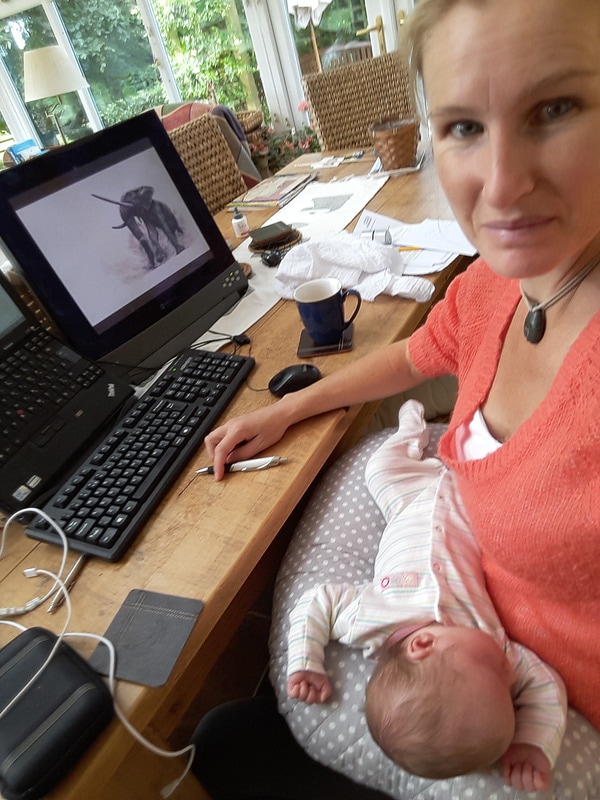
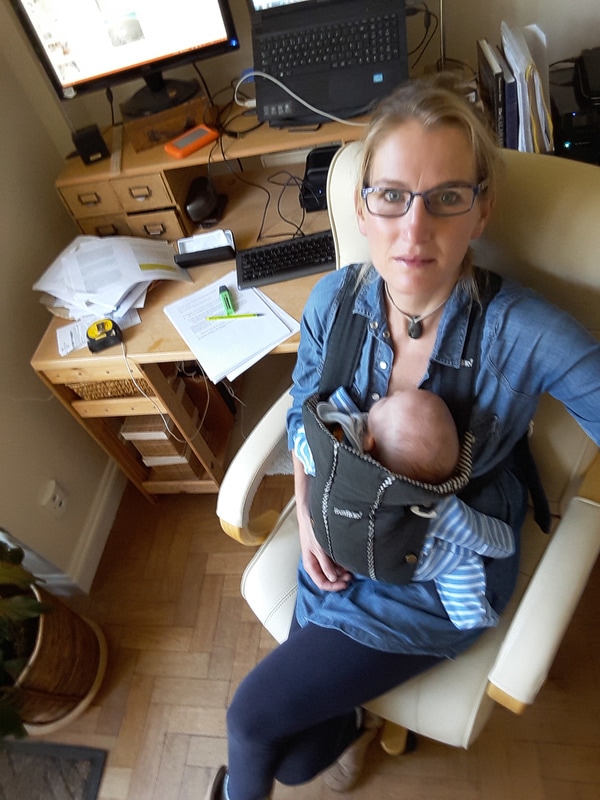
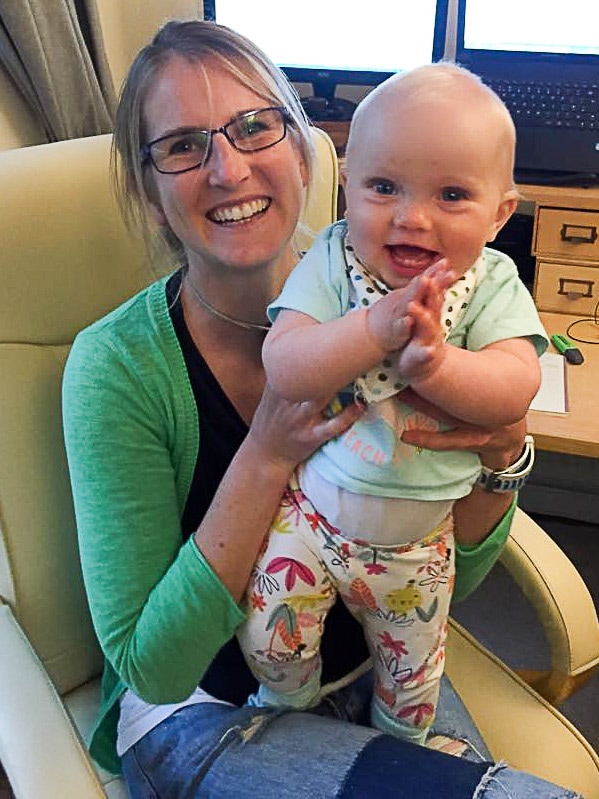
 RSS Feed
RSS Feed
